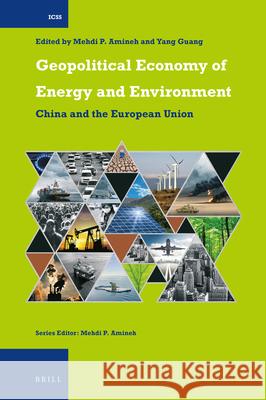Geopolitical Economy of Energy and Environment: China and the European Union » książka
Geopolitical Economy of Energy and Environment: China and the European Union
ISBN-13: 9789004273108 / Angielski / Twarda / 2017 / 512 str.
This book is the product of a joint research program between the Institute of West Asia & African Studies of the Chinese Academy of Social Sciences, Beijing and the Energy Program Asia of the International Institute for Asian Studies, Leiden University. China's transition to an urban-industrial society relies on its abundant domestic coal supplies, and on an increase in oil and gas imports. However, authorities are confronted with trade-offs between investments in expanding supplies of fossils, environmental sustainability, energy efficiency and in clean energy. Resources spent on expanding imported energy have to weighted against clean energy investments and improving efficiency of the fossil-fuel sector. The same is no less true for the European Union and its member states. Import dependency on piped gas is again growing. Security of supply of natural gas depends on political cooperation with energy-rich countries. At the same the EU has to meet its clean energy commitments by compromises between member states and 'Brussels'. Chinese National Oil Companies bridge the worlds of government in China and the extractive sector in hydrocarbon exporting-countries. At the global level, Chinese (Trans-)National Oil Companies maintain competitive and cooperative relations with privately owned International Oil companies. This book focuses, among others, on these networks with the objective to contribute to the study of the geopolitical economy of the energy sectors in the global system. Contributors are: M.P. Amineh, Eric K. Chu, Wina H.J. Crijns-Graus, Robert Cutler, Li Xiaohua, Liu Dong, Chen Mo, Nana de Graaff, Joyeeta Gupta, Sara Hardus, Barbara Hogenboom, Sun Hongbo and Yang Guang.











